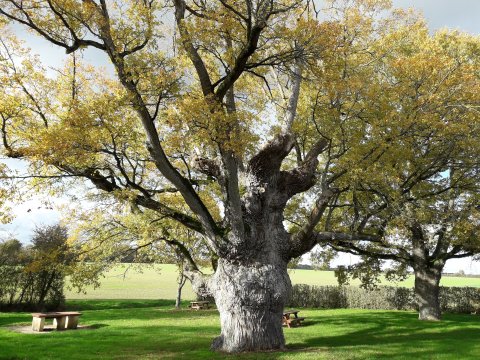The French Agroforestry Development Plan, running from 2015 to 2020, was set up by the French Government and coordinated by the Department of Agriculture, to develop and manage all agroforestry systems within the national territory; The Agroforestry Development Plan is part of the French Agroecology Project and covers five key domains:
(1) Enhance the knowledge of agroforestry systems diversity;
(2) Improve the regulatory and legal framework, and strengthen financial support;
(3) Develop agroforestry consulting, training and promotion;
(4) Get the sustainability and the economic value of agroforestry products better;
(5) Promote and disseminate agroforestry internationally.
On July 9th, 2020, the French Agroforestry Plan has been evaluated. As a first conclusion, this strategic plan enhances the technical and political visibility of agroforestry systems and actions already underway.
Regarding the first key domain, the impact of knowledge enhancement, the results are somewhat mixed, as concrete realizations of agroforestry systems with respect to diversity are modest (few new establishments), national research funding remained at the same level as in 2012 and operational issues like carbon compensation and payments for environmental services still remain unlighted.
The second domain covering regulatory, legal and financial issues results are also nuanced. Albeit implementation, analysis and visibility of financial tools are below the expectations, the visibility of legal tools has been enhanced.
The third domain - consulting, training and promotion - has proven to make good achievements, particularly with respect to training and lobbying, but less so concerning technical advice, which has not been organised as ambitious as set up in the Plan.
Certification as the main result of the fourth domain was established successfully with the creation of “Label Haie” and the label “Végétal Local”. Moreover, some documents had been written to promote agroforestry within agricultural sectors. Nonetheless, the Plan had no direct action in order to strengthen agroforestry reclamation sectors.
The results within the fifth domain, the promotion and dissemination of agroforestry internationally, was considered a success as the 3rd European Agroforestry Conference in 2016 and the 4th World Congress on Agroforestry in 2019 have been organized and facilitated by INRAe and CIRAD in Montpellier. Moreover, French delegates have been a key interface between EURAF, French politicians and agroforestry stakeholders concerning strategic European policies like the future CAP.
The first French Agroforestry Development Plan is just a beginning since the creation of a second Agroforestry Development Plan is already approved. While the five key domains will remain, some improvements are proposed such as a co-coordination between the Department of Agriculture and the Department of the Ecological Transition, a regional roll-out, quantified goals, a list of prioritised results, and a better monitoring in order to enhance agility and adaptation throughout the Plan. To improve coordination and communication between national and European scales is also a priority.
As a lot of work remains, let’s elaborate this second Plan with the colleagues at EURAF!
Claire Lemarié












